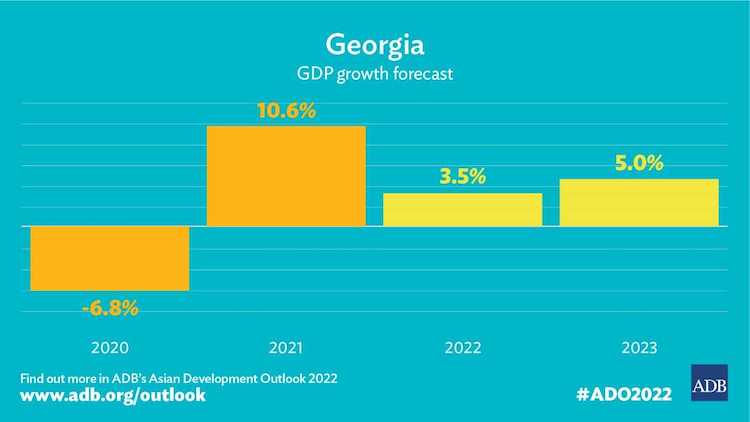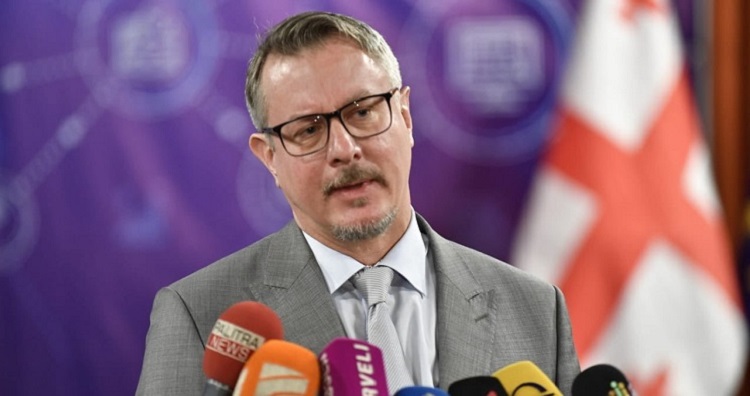ADB: Georgian economy to slow to 3.5% growth in 2022 due to Ukraine war

The report of the international financial institution additionally pointed out the need of strengthening subnational public finances in Georgia, enabling “more efficient and equitable provision of services including complex services that are critical for large population centres.” Photo: Nino Alavidze/Agenda.ge
The Georgian economic growth is expected to slow to 3.5 percent in 2022 due to ongoing hostilities in Ukraine, after the “promising double-digit growth” last year, a new report of the Asian Development Bank (ADB) reads.
The ADB, which forecasted 6.5 percent growth of the Georgian economy in 2022 in its previous publication, projected a five percent growth in 2023 in view of the “increased internal and external demand, fuelled by faster credit growth,” calling it a “slight recovery”.
Shane Rosenthal, the ADB Country Director for Georgia, said the country was going to see an effect of the Russian invasion of Ukraine through reduced tourism, exports, and remittances, adding the Georgian Government needed a “careful prioritisation” of expenditures after two years of “expanded pandemic-related spending”.
The report further forecasted inflation in the country to slow to seven percent in 2022 and to four percent in 2023, adding the current account deficit was estimated to equal 10 percent of the gross domestic product in 2022, “with a forecast rise in oil prices before narrowing to 7.5 percent in 2023.”
 Image: ADB
Image: ADB
ADB projected 12.1 percent increase in exports in 2022 and 14.9 percent in 2023, while remittances were forecast to decrease to $1.8 billion in 2022 and $1.7 billion in 2023 due to the economic sanctions cutting growth in Russia.
The report of the international financial institution additionally pointed out the need of strengthening subnational public finances in Georgia, enabling “more efficient and equitable provision of services including complex services that are critical for large population centres.”
Georgia can benefit significantly by building capacity in municipalities. The success of fiscal decentralisation will depend on developing financial management capacity in local governments and training local officials in policy development and implementation skills, such as health and education budgeting and social service delivery,” the ADB said.
ADB has supported Georgia since 2007 with $3.9 billion through sovereign and non-sovereign loans issued to the country.
 Tweet
Tweet  Share
Share








